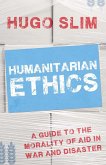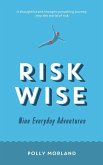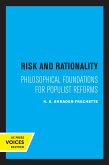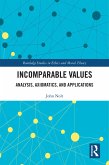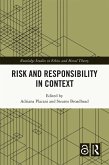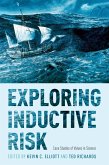With COVID-19 comes a heightened sense of everyday risk. How should a society manage, distribute, and conceive of it?
As we cope with the lengthening effects of the global COVID-19 pandemic, considerations of everyday risk have been more pressing, and inescapable. In the past, everyone engaged in some degree of risky behaviour, from mundane realities like taking a shower or getting into a car to purposely thrill-seeking activities like rock-climbing or BASE jumping. Many activities that seemed high-risk, such as flying, were claimed basically safe. But risk was, and always has been, a fact of life. With new focus on the risks of even leaving the safety of our homes, it's time for a deeper consideration of risk itself. How do we manage and distribute risks? How do we predict uncertain outcomes? If risk can never be completely eliminated, can it perhaps be controlled? At the heart of these questions-which govern everything from waking up each day to the abstract mathematics of actuarial science-lie philosophical issues of life, death, and danger. Mortality is the event-horizon of daily risk. How should we conceive of it?
As we cope with the lengthening effects of the global COVID-19 pandemic, considerations of everyday risk have been more pressing, and inescapable. In the past, everyone engaged in some degree of risky behaviour, from mundane realities like taking a shower or getting into a car to purposely thrill-seeking activities like rock-climbing or BASE jumping. Many activities that seemed high-risk, such as flying, were claimed basically safe. But risk was, and always has been, a fact of life. With new focus on the risks of even leaving the safety of our homes, it's time for a deeper consideration of risk itself. How do we manage and distribute risks? How do we predict uncertain outcomes? If risk can never be completely eliminated, can it perhaps be controlled? At the heart of these questions-which govern everything from waking up each day to the abstract mathematics of actuarial science-lie philosophical issues of life, death, and danger. Mortality is the event-horizon of daily risk. How should we conceive of it?
Dieser Download kann aus rechtlichen Gründen nur mit Rechnungsadresse in A, D ausgeliefert werden.




